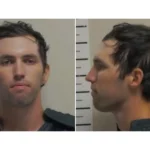Blog Post
Teacher reveals that 17 students have become trans at one school–and most of them are autistic
By Jonathon Van Maren
Transgender ideology is sweeping through some high schools like wildfire—including one school in particular in the UK, where seventeen students have come out as trans. In response to this, one teacher approached the Daily Mail and gave an anonymous interview revealing that most of these children are autistic, as well as other stunning revelations. From the Daily Mail:
An astonishing 17 pupils at a single British school are in the process of changing gender, The Mail on Sunday can reveal. Most of the youngsters undergoing the transformation are autistic, according to a teacher there, who said vulnerable children with mental health problems were being ‘tricked’ into believing they are the wrong sex.
The whistleblower says few of the transgender children are suffering from gender dysphoria – the medical term for someone who feels they were born in the wrong body – but are just easily influenced, latching on to the mistaken belief they are the wrong sex as a way of coping with the problems caused by autism.
Earlier this year, The Mail on Sunday revealed that a third of youngsters referred to the NHS’s only gender identity clinic for children showed ‘moderate to severe autistic traits’. It means that 150 autistic teenagers were given puberty blocker drugs which stop the body maturing.
The teacher says she felt compelled to speak out to protect pupils, many of whom she believes could already be taking the powerful drugs and may go on to have life-changing surgery.
She believes schools and some politicians have swallowed ‘hook, line and sinker’ a politically-correct ‘fallacy’ peddled by a powerful transgender lobby.
She has asked The Mail on Sunday to conceal her identity for fear of dismissal after almost 20 years as a teacher, But in a shocking interview, the woman, who we shall call Carol, tells how:
She was advised to keep parents and other teachers in the dark if a pupil claimed to be transgender;
Older pupils at her school who changed gender ‘groomed’ younger, mainly autistic students to do the same;
One autistic teenager is soon to have a double mastectomy;
Pupils who say they were born the wrong sex mimic transgender YouTube stars Carol believes are partly to blame for convincing vulnerable children they have gender dysphoria.
Last night, Conservative MP David Davies said: ‘I congratulate this teacher for coming out and telling us what I have long suspected has been going on in schools. It is horrendous that children are being encouraged by other pupils to identify as transgender, particularly if they have autism.
‘Parents are not told about this and there is no way of challenging these pupils who are convinced by others that they have a problem they almost certainly do not have. Tragically the end result could be irreversible surgical procedures. This is scandalous.’
The teacher, who has her own child, also believes many of those who say they are the wrong sex are simply gay but would face bullying if they were to ‘come out’. By contrast, she says, transgender children at the school are idolised by other pupils.
She has also raised concerns that many teachers are now too scared to challenge students’ claims they are transgender because they fear being sacked or sued for being transphobic.
The 17 pupils now identifying as transgender are following in the footsteps of a teenager who has now left the school and is planning a double mastectomy.
That student, who was born female, told Carol she wanted to identify as non-binary-a person – with no specific gender – in January 2014, at the age of 16 and two years after being diagnosed as autistic.
After consulting with her parents, the school agreed to change the student’s name on the register to one that was gender neutral. Teachers also agreed to use both male and female pronouns depending what gender the student identified as on any given day.
‘These pronouns could change from hour to hour depending how the student was feeling,’ Carol said.
Carol put the pupil in contact with a transgender support group but now says she bitterly regrets her handling of the case. ‘That child was diagnosed as autistic at the age of 14 and certainly was not transgender,’ she said. ‘She had other complicated mental health problems. It is a tragedy her claim was accepted so readily. Now she is going to mutilate her body.’
Over the next four years, the 17 pupils who have ‘come out’ as transgender have become powerful within the school, Carol says.
They wear identical clothing and hairstyles and often adopt the names of transgender YouTube stars. She has also witnessed first-hand how older pupils have persuaded younger ones with autism that they, too, were born the wrong sex – a process she has likens to ‘grooming’.
‘They are just young people with mental health problems who have found an identity and want to be part of a group of like-minded people,’ she said.
Over an unblemished teaching career spanning two decades, Carol has devoted much of her time to the emotional and personal well-being of the pupils in her care.
So when a 16-year-old student she had known for many years quietly confided that she felt trapped in the wrong body and was considering changing gender, her instinct was to take the teenager lovingly under her wing.
Even though Carol knew the child had been diagnosed as autistic two years earlier, she vowed to provide the support the youngster needed to guide her through what would obviously be a difficult journey.
It was January 2014 and the debate over transgender rights, so supercharged today, had barely begun.
The baffling array of terminology used to define various permutations of so-called ‘gender identity’ was yet to emerge and Carol admits she didn’t know where to turn for help.
But then, because she was in charge of pupils’ pastoral care, Carol was contacted by an organisation that aimed to help transgender youngsters.
The body, which Carol has asked us not to name because she fears doing so might identify her and the pupil, had recently opened a centre nearby.
The student, who was born female, had insisted that she now wanted to identify as non-binary – a person with no specific gender – so Carol happily referred her to the group. But the gently spoken mother has come to bitterly regret that decision.
‘Once she was involved with that group there was no turning back,’ she says. ‘It was decided that she was transgender and that was that, it was never challenged and I blame myself for that.’
Carol now firmly believes that the student never suffered from gender dysphoria – the medical term for someone who feels they were born in the wrong body – but was simply autistic and should have been offered more help to cope with their emotional and social difficulties.
What makes this even more painful for Carol and is one of the reasons she has chosen to speak out today is that she has learned the girl is planning a double mastectomy as part of her gender realignment.
She says: ‘That child was diagnosed as autistic at the age of 14 and certainly was not transgender – she had complicated mental health problems. It is a tragedy that now she is going to mutilate her body.’
Teachers are being advised not to tell parents if their child wants to change sex.
The website of charity Mermaids contains advice that pupils should not be ‘outed’ as transgender, because their parents may not be supportive.
‘Confidential information must not be shared, even with parents and carers, without the child or young person’s permission unless there are safeguarding reasons for doing so,’ the group says, further stressing: ‘Being trans or gender questioning is not a safeguarding concern in itself.’
The charity was set up to help youngsters who are confused about their gender, and helped producers make the recent ITV drama Butterfly about a transgender child, starring Anna Friel and Callum Booth-Ford. It gives its advice in a 50-page Trans Inclusion Schools Toolkit, a guide available on its website for teachers on how to support transgender pupils.
The guidance acknowledges teachers will wish to consult with parents when a child confides that they want to identify as the opposite sex.
But it states: ‘When working with parents and carers, [schools and colleges] should keep in mind that they are representing the interests of the child or young person.
As far as possible, care should be taken to ensure the wishes of the individual are taken into account with a view to supporting them during potential transition.’
The guide promoted by Mermaids was created by Allsorts Youth Group, an LGBT organisation based in Brighton.
She recalls how the school did all it could to accommodate the student. After consulting with the child’s parents, it agreed to change the student’s name on the register to one that was gender neutral. Teachers also started to refer to them using both male and female pronouns depending what gender the student identified as on any given day. ‘The pronouns could change from hour to hour depending how the student was feeling,’ Carol said.
The teen asked if she could hold an assembly to tell other pupils at the school about being transgender, but Carol blocked this.
Now she understands the pupil informally ‘educated’ fellow students, which Carol suspects could have been the catalyst for a wave of ‘copycat’ cases among autistic pupils. She says the process reminds her of ‘grooming’. Over the next four years, Carol witnessed an astonishing explosion in the number of children claiming to be transgender.
In all but a very few cases, she says, the children were officially diagnosed as autistic by the local education authority. Those not formally diagnosed showed clear signs of being on the autistic spectrum, she says. According to Carol, nine of the 18 children she has seen identify as transgender have been diagnosed with autism while the rest had definite signs of the condition. ‘Typically, these children are bright outsiders,’ she says.
‘I don’t believe they are actually transgender. They are just young people with complex mental health issues who have found an identity and want to be part of a group of like-minded people.’
According to an internal report, a third of patients referred to the Tavistock Clinic, the UK’s only NHS service for young people confused about their gender, have strong autistic traits.
The dramatic increase in the numbers of pupils wanting to change gender coincided with a growing clamour from activists demanding more rights for transgender people.
The Government is now consulting on whether to allow people to change gender without medical diagnoses.
It has sparked a furious debate about whether men who say they identify as women should be allowed into female-only spaces. Carol does not back this move but is sympathetic to transgender people. She said: ‘If a child genuinely has gender dysphoria then of course they should get all the love and support they need. But I believe that autistic children who are not transgender are being exploited by the transgender lobby. They are being brainwashed into believing they are transgender.’
Transgender YouTube star Ash Hardell is idolised by hundreds of thousands of teenagers around the world, with more than 500,000 subscribers to his video channel.
Ash, who was born female but now identifies as non-binary – neither male nor female – introduces one video about breast removal, entitled I Got Top Surgery!!, with the words: ‘Watch my journey to flat and happy!’
In it, Ash tells fans: ‘After surgery there was not only this wave of euphoria, but also the biggest wave of relief… I’m telling you, it was the right decision and I’m so happy.’
Commenting on the video, one young follower said: ‘When I’m older I will get top surgery no matter what my parents say!!’
British-born Alex Bertie, 23, also has a hit channel where he has been sharing details of his transition from female to male since the age of 15 with his 300,000 followers.
He told one young person who contacted him saying that they felt ‘confused’ and ‘not trans enough’ that they were repressing their true feelings.
‘Just because you are pushing it down and covering it up doesn’t mean it’s not still there,’ Alex said.
She said what was most worrying is some of them could be taking strong ‘puberty blocker’ drugs that interrupt physical development.
They do this without the knowledge of their parents and without medical supervision, even though the chemicals ‘could give them serious health problems later in life’.
The school, the location of which Carol has asked to keep secret, has 17 pupils who claim they are transgender.
The majority are girls who claim to be ‘non-binary’ or ‘identify’ as boys and a small number of boys who identify as girls. She says they are often bright students who are likeable and popular.
Other girls flock to them as if they are teen idols and some go on dates with them.
It seems, Carol says, as if being transgender is in fashion.
Carol describes how some of the more outspoken transgender children police language and behaviour, often accusing teachers and fellow pupils of ‘misgendering’.
Offence is caused by the use of an incorrect pronoun or by failing to acknowledge a student’s new gender identity.
Last year, this newspaper revealed how a teacher in Oxfordshire faced professional misconduct charges when he ‘accidentally’ called a transgender pupil a ‘girl’ when the student identifies as a boy.
Carol says: ‘I was discussing the topic of menstruation during a class recently and was called out by one of the pupils who now identifies as a boy for failing to say that boys can have periods too.
Of course they can’t and it sounds like a joke but a lot of teachers are terrified of making a slip-up.’
Carol said in the current climate she would ‘not dare’ suggest to a pupil who said they were ‘trans’ that they may be mistaken. ‘If there was a complaint, I could be dismissed.’
She says transgender pupils tend to convert in ‘clusters’ of two or three around the age of 14 and in a very uniform manner: wearing their hair in a quiff and dyeing it blue, black or blond, and starting to wear large round glasses, Dr Martens boots, donkey jackets and tight trousers.
‘I would guess they must all be wearing chest binders [to flatten the breasts] and I was told of one girl who was padding her underwear to make it look like she had a penis.’
Despite there being such a large number of transgender children in the school, Carol says there is little guidance from the Department for Education or senior staff on how to handle them.
Her union directed her to transgender support group Mermaids, whose online advice warns teachers not to tell parents when a pupil wants to change sex unless ‘there is a safeguarding issue’.
Carol said: ‘In my view there is always a safeguarding issue – particularly when you know that child has underlying mental health problems. Surely every parent has a right to know. Advice to keep it a secret breaks the No 1 rule about child protection.’
Mermaids were unavailable for comment last night,
Carol says transgender pupils at her school sometimes adopt the names of trans YouTubers who have found fame online.
There have been times when a group of pupils who are identifying as boys all use the same name.
Some internet celebrities have been accused of influencing younger children to think they are transgender when they are not.
In one video, popular star Alex Bertie tells a young person who said they were ‘confused’ and ‘didn’t feel trans enough’ that they were ‘repressing’ their transgender identity.
Carol believes that many of the girls who come out as transgender are, in fact, lesbian. They date other girls who are both trans and non-trans, she reveals.
‘From talking to these girls, the thought of being a heterosexual female is terrifying for them, but being known as a lesbian is also unpalatable, so they become transgender.
I think as lesbians they would face more bullying but as transgender children they almost become popular.’
The attraction, she says, is that by becoming trans these socially awkward children who have struggled to find acceptance suddenly see their popularity rocket.
‘They have girls flocking around them like handmaidens because they look like pretty little boys,’ she says. ‘They mirror teenage fantasies, resembling popstars like Justin Bieber. These trans kids actually become quite powerful in the school.’
She adds that one of the most worrying ways these pupils exercise their newfound power is by influencing younger children, ‘who are nearly always autistic’, to think they, too, are transgender, which reminds her of grooming.
Carol told of how distressed children would come to her and say they are trans, explaining to her: ‘I was feeling very lost, but [an older transgender student] found me crying in the corridor and helped me understand who I truly am.’
Her concerns come amid growing alarm over the surge in the number of teenage girls wanting to change gender. More than 1,000 were referred for treatment this year compared to just 40 in 2010. Equalities Minister Penny Mordaunt has ordered an investigation into why.
It should be obvious to any person of good will—that is, those who are not invested in the implementation of the LGBT ideology into the education system—that something is going very, very wrong. All the warning signs are present. Rates of young trans people requesting de-transition are skyrocketing. And yet, trans activists viciously smear any one who asks questions about this unfolding disaster.
This is precisely why activists like Tanya Granic Allen in Ontario are fighting so hard to keep gender ideology out of schools, and why activists in Alberta are desperate to repeal Bill 24, which would have schools keep information on LGBT issues away from parents. In fact, there has already been one instance of a school in Alberta treating an autistic child as trans and keeping that information from the parents. It is not just that this could happen here in Canada—it already has.
_____________________________________________________________
For anyone interested, my book on The Culture War, which analyzes the journey our culture has taken from the way it was to the way it is and examines the Sexual Revolution, hook-up culture, the rise of the porn plague, abortion, commodity culture, euthanasia, and the gay rights movement, is available for sale here.








